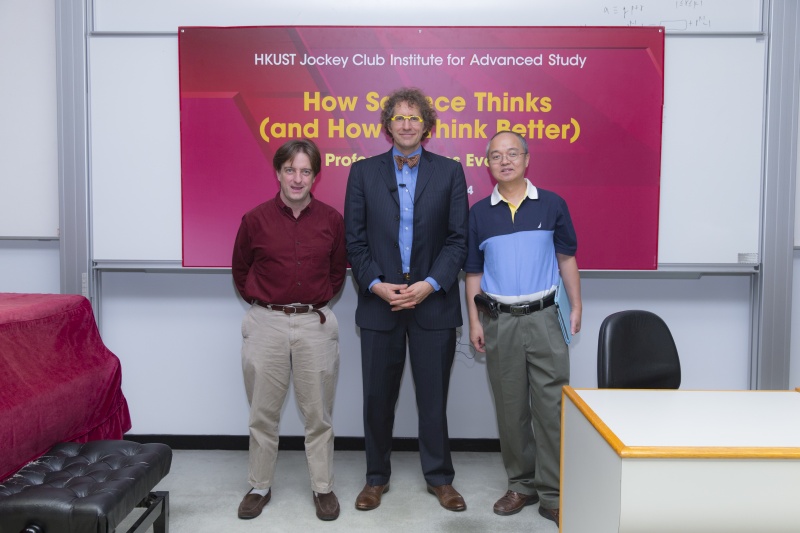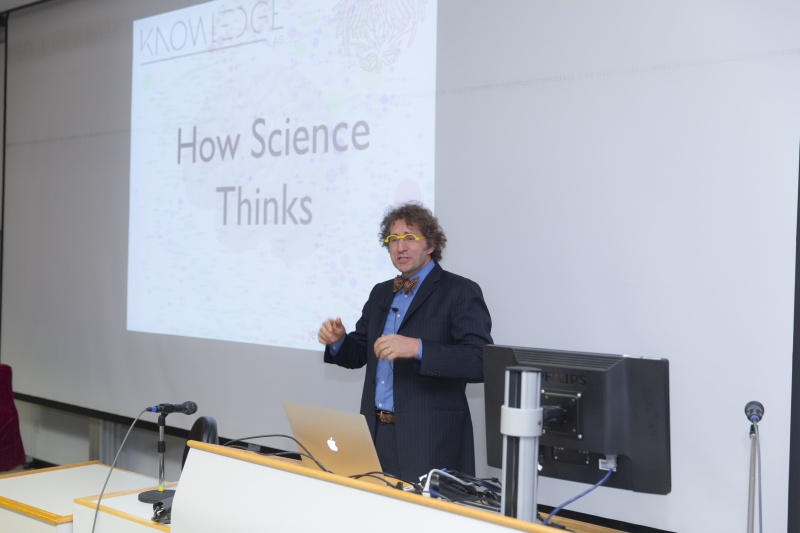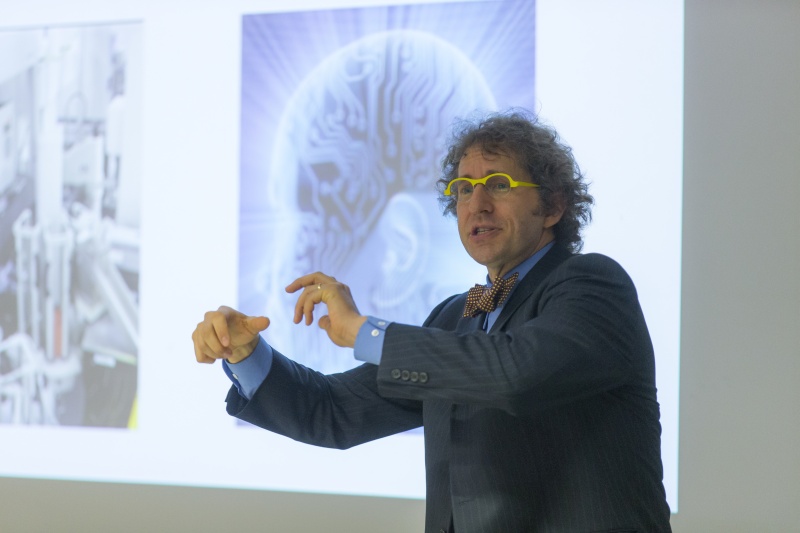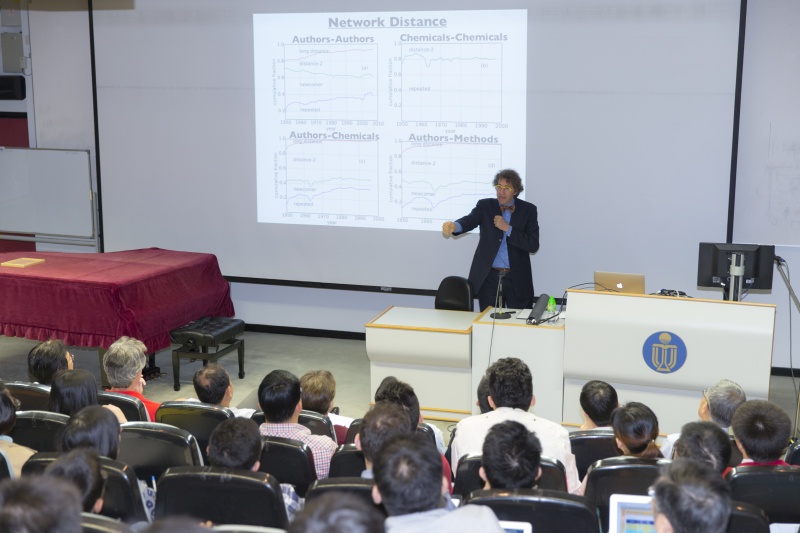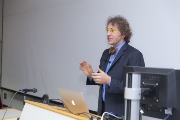How Science Thinks (and How to Think Better)
Abstract
Science is a complex system: apparently complicated, shaped by strong interactions between diverse components, and displaying emergent, often unexpected collective outcomes. In this talk, the speaker explores how the complex network of science provides a substrate on which a scientist – and indeed science as a whole – thinks. Using contents from millions of scientific articles and patents, he shows how science moves between problems posed and questions answered in one year and those examined in the next. This process reveals an “essential tension” between the professional demand for productivity and a conflicting drive toward risky innovation. It also demonstrates how scientist swarm gathers around funds and well-published claims; and migration between topics via methods. Performing massive supercomputer experiments, the speaker compares the efficiency of typical research strategies with thousands of alternatives in the context of biomedical chemistry. Existing strategies of chemical discovery are efficient only for initial exploration of the network of chemical relationships. Much more efficient strategies for mature fields involve more individual risk-taking than the structure of modern scientific careers supports and the speaker shows how publication of experimental failures and investment in alternative paths of discovery could substantially improve the speed of discovery. He explores the implications of these findings for institutional redesign and machine science – the expanded use of computation from analysis to hypothesis generation and scientific imagination.
About the speaker
Prof. James Evans received his PhD in Sociology from Stanford University in 2004. He had been research associate in the Negotiation, Organizations, and Markets group at Harvard University. He is currently Director of the Knowledge Lab and Associate Professor of Sociology at the University of Chicago. He is also Senior Fellow at the Computation Institute there.
Prof. Evans’ current work explores how social and technical institutions shape knowledge – science, scholarship, law, news, religion – and how these understandings reshape the social and technical world. He is particularly interested in the relation of markets to science and knowledge more broadly. He has studied how industry collaboration shapes the ethos, secrecy and organization of academic science; the web of individuals and institutions that produce innovations; and markets for ideas and their creators. He has also examined the impact of the Internet on knowledge in society. His work uses natural language processing, the analysis of social and semantic networks, statistical modeling, and field-based observation and interviews.

